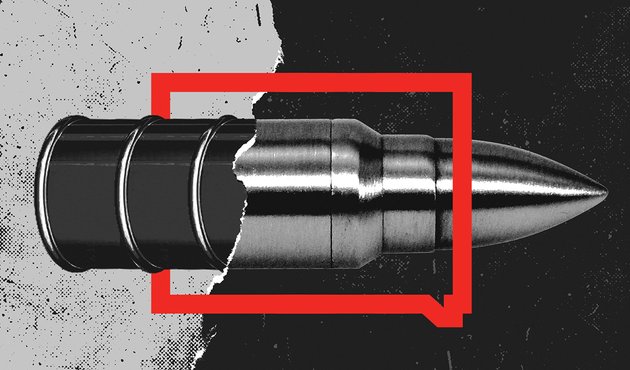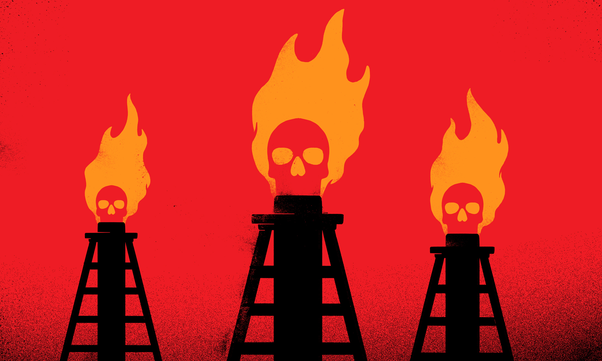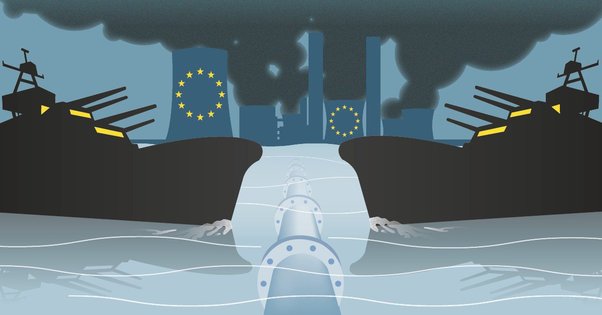Majority of gas worth $19 billion transited Palestinian waters without Palestine's consent while Palestine received nothing for it
A 2022 gas deal between Israel, Egypt and the EU could make the EU complicit in breaches of international law, according to legal experts, Global Witness can reveal.
The route for this gas from Israel to the EU relies on a pipeline, operated in part by US oil giant Chevron, which crosses Palestinian territory without regard for international conventions.
EU replaces one human rights-abusing gas supplier with another
In 2022, the EU took a clear stance on ending the era of Russian fossil fuels in Europe. In answer to “Russia’s unjustified military aggression against Ukraine and its weaponisation of gas supplies,” the EU has sought to diversify its gas supply.
This included a Memorandum of Understanding with Israel and Egypt on gas exports to Europe, signed in June 2022. According to Israel’s energy ministry, the agreement enables substantial Israeli gas exports to Europe.
The EU also agreed to encourage European companies to invest in fossil gas (also known as “natural gas”) exploration and production in Israel and Egypt.
Israel’s war on Gaza, unlike Russia’s on Ukraine, has prompted no such response, with the EU and its member states continuing to do business with Israel. This is despite the International Court of Justice (ICJ) finding a risk of irreparable harm to the Palestinian right to be protected from genocide in January 2024.
Later that year, a UN Special Committee found that Israel’s war in Gaza is consistent with the characteristics of genocide, stating: “Israel is intentionally causing death, starvation and serious injury.” Amnesty International’s investigation also concluded in late 2024 that Israel is committing genocide against Palestinians in Gaza.
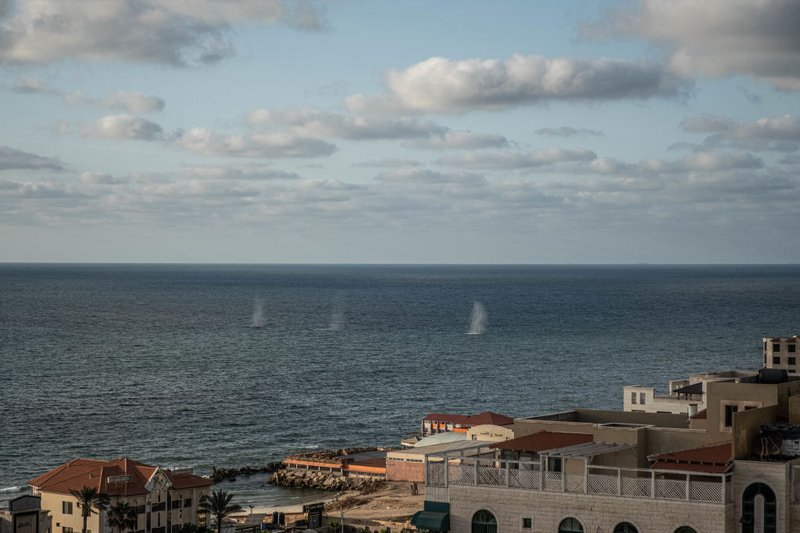
The pipeline in Palestinian territory
The main way for gas to reach the EU from Israel is currently via a pipeline that runs from Ashkelon in Israel to Al-Arish in Egypt. Once in Egypt, Israeli gas can be used domestically or is fed into Egypt’s liquefaction plants from where liquified natural gas (LNG) is exported globally.
The pipeline, also known as the East Mediterranean Gas (EMG) pipeline, runs parallel to Gaza’s shore. We used estimated coordinates from Rystad Energy based on data from the European Network Transmission System Operators for Gas (ENTSOG), to map the pipeline. We cross-referenced this with Palestinian maritime zones according to Palestine's declaration in accordance with the UN Convention of the Law of the Sea (UNCLOS) in 2019.
The map below shows Palestine’s maritime zones and the trajectory of the pipeline. The pipeline crosses Palestine’s contiguous zone and the exclusive economic zone. It is possible it also crosses a section of its territorial sea, but the coordinates of the pipeline seen by Global Witness are not exact (due to security reasons), so this is uncertain.
Under UNCLOS, every coastal state has sovereignty over its territorial sea, which extends up to 12 nautical miles (around 22km) off the coast. Ships from other countries can pass but cannot engage in commercial activities like fishing or any military activity. The contiguous zone extends for another 12 nautical miles from there. In this area the coastal state has the right to enforce its laws on matters such as customs and pollution.
The exclusive economic zone reaches 200 nautical miles from the coast and the coastal state has exclusive rights over natural resources.
Finally, the continental shelf includes the seabed extending for 200 nautical miles (or further depending on the seabed’s features). In this area, the course for laying pipelines is subject to the consent of the coastal state, and the coastal state can establish conditions for pipelines.
Israel has objected to Palestine’s declaration of maritime zones, stating that only sovereign states have the right to declare maritime boundaries and that Palestine does not satisfy the criteria for statehood under international law.
However, according to legal experts’ advice received by Global Witness, this argument cannot be sustainable given the clear position on Palestinian statehood and sovereignty under international law, as summarised below.
The Palestinian Authority did not agree to the pipeline, according to the Mission of Palestine to the EU and Palestinian human rights organisation Al-Haq.
As early as 2016, the Mission of Palestine to the EU raised the restrictions Israel was inflicting on the energy sector in Palestine with devastating consequences. These include lack of access to electricity, restricted sanitation and military control.
Global Witness could find no evidence that Palestine receives transit fees or other monetary compensation for the pipeline. By contrast, Ukraine still made $0.8 billion in 2023 from transit fee revenues after Russia’s full-scale invasion – equivalent to about 0.5% of its GDP.
Transit fees are also reportedly being paid to Egypt and Israel’s state gas operator for occasional Israeli gas flows via a different route (the Arab Gas pipeline).
Global Witness contacted Israel, Egypt, the EU and the Palestinian Mission to the UK for comment on our findings. None responded.
Legal experts say pipeline likely breaches international law
Palestinian agreement to such a pipeline is required under the Oslo Accords and international law. Global Witness also received independent legal advice from expert lawyers outlining multiple breaches of international law posed by the pipeline – and the EU’s role in these infractions. The legal analysis below is based on this legal advice.
In 2025, Palestine has been recognised as a sovereign nation by 147 countries – equivalent to 75% of UN member states. The legal advice highlighted that under international law, Palestinian statehood, territorial sovereignty and Israel’s position as an occupying power has been consistently recognised in international courts and in the UN.
The European Parliament has itself recognised Palestinian statehood in principle since 2014. Accordingly, Palestine is a sovereign state with rights over its maritime zones, including under UNCLOS.
This means that Israel and Egypt’s construction of the Ashkelon-Arish pipeline across Palestinian maritime zones without agreement from the Palestinian Authority is a breach of international law, according to legal experts.
Under UNCLOS, coastal states have exclusive rights to construct, authorise and regulate structures in their exclusive economic zone. Laying gas pipelines requires consent and input from the coastal state. Palestine was not consulted and did not get the opportunity to agree financial or environmental conditions.
Israel is not a signatory to UNCLOS. However, the lawyers advised that many UNCLOS provisions – especially pertaining to the EEZ regime – reflect customary international law, which Israel is bound by.
Israel will therefore still be bound by the core principles relating to the EEZ regime and is further signatory to the Barcelona Convention 1976 and its Protocols, which the lawyers argued requires the sovereign rights of all states to be considered. This could put the pipeline in violation of international law.
The fact that Israel has not transferred powers over gas production to Palestine and maintains control over the sea is itself also a breach of international law, including UNCLOS, according to legal advice.
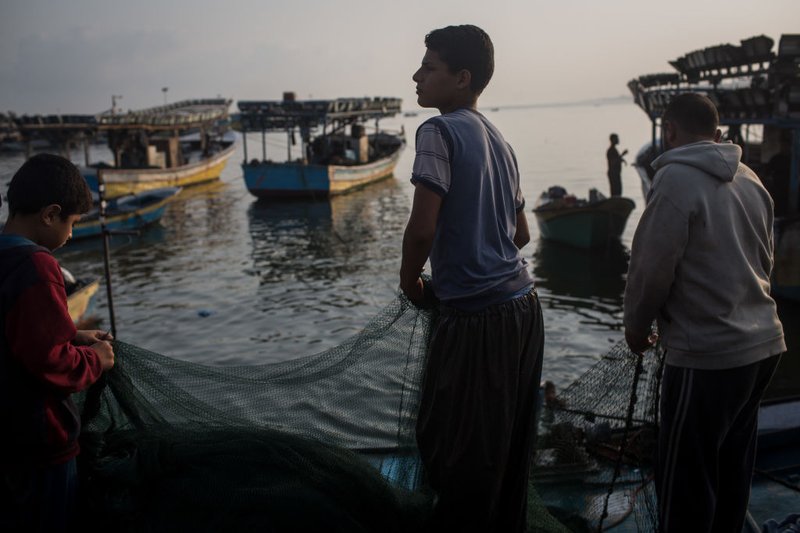
EU complicity in breaches of international law
If Israel is found to be in breach of international law for the reasons set out above, by signing the Memorandum of Understanding without Palestinian agreement and purchasing gas transported through the pipeline, the EU has also likely violated customary international and EU law, as outlined by the expert legal advice.
This is because – where that pipeline is in breach of international law – the EU will subsequently be complicit.
The EU’s Memorandum of Understanding could also be seen as legitimising Israel’s unjustified unilateral control over Palestinian maritime zones.
EU’s unsatisfactory response to queries about the Memorandum of Understanding
In 2022, four Green MEPs questioned the European Commission on whether any aspects of the Memorandum of Understanding apply to the Occupied Palestinian Territory, including its exclusive economic zone.
The Commission’s answer said it would not apply in any form to the Occupied Palestinian Territory, “which entails that Israeli supplies of natural gas as per the implementation of the memorandum of understanding may not originate from resources appropriated from Palestinian territories occupied by Israel.”
But the pipeline crosses the exclusive economic zone, which forms part of the Occupied Palestinian Territory. The EU’s response only refers to resource extraction and ignores Palestine’s sovereignty in the exclusive economic zone and the absence of Palestinian consent to the laying of the pipeline itself.
EU involvement doesn’t stop at the gas deal. A European company, Snam, is part owner of the pipeline via a 25% share. The company itself has shareholders from across the EU, including a company largely owned by the Italian state.
Chevron Mediterranean Limited, an Israel-based subsidiary of the US-headquartered company Chevron, is also part owner and part operator.
These are grounds to investigate whether these companies and individual EU member states could be directly breaching EU regulations and international law respectively, through their part ownership of the pipeline.
Reached for comment, Snam’s press office said: “As per current regulation Snam is not involved in the production or sale of energy in any of the regions where it operates.”
It added that its minority stake in the pipeline “was acquired in 2021, at a different historical moment than the current one. While monitoring the situation, Snam hopes for a swift and peaceful solution of the current crisis in the area.”
Chevron said: “Chevron’s business activities are fully consistent with international law and contribute to economic prosperity in the region.
“Chevron’s business activities in the Eastern Mediterranean help provide critical energy to millions of people in the region, including in Israel, Egypt, and Jordan. Disrupting that energy supply would harm human rights, not advance them.”
Global Witness contacted Italy, NewMed Energy, Mediterranean Gas Pipeline Ltd., and Egypt, as the ultimate owner of East Gas Company and the Egyptian General Petroleum Corporation, for comment. None responded.
Israel’s lethal naval blockade of Palestine’s maritime zone
For years, Israel has been imposing a lethal naval blockade as close as 3-6 nautical miles off Gaza’s coast. According to Al-Haq, this blockade has in part been to “protect” the gas pipeline.
The blockade has wrecked the Palestinian fishing industry, resulting in food insecurity. Israeli military violence against Palestinian fisherfolk has included killings and arrests. Palestinian children have also been detained and injured by Israeli forces shooting at fishing boats.
The aggression committed by Israel against the Palestinian fishing community is a clear breach of the Fourth Geneva Convention and other principles of international humanitarian law, according to the expert lawyers.
All EU countries have ratified the four Geneva Conventions.
How much gas is Israel exporting to the EU?
While it isn’t possible to trace the exact molecules from Israel to the EU – because the gas is fed into the Egyptian grid where it mixes with gas sourced from elsewhere – the additional gas from Israel to Egypt enables further exports to the EU.
The Ashkelon-Arish pipeline was originally built to transport gas from Egypt to Israel, but due to supply shortages in Egypt, the countries reached an agreement to reverse the flow of gas in 2015. Gas first started flowing from Israel to Egypt in 2020. Some of the gas was intended for use in Egypt, with the rest planned for export to Europe.
In the period 2020-2024, Israel exported a total of 26 billion cubic metres (bcm) of gas to Egypt, according to Global Witness analysis of Rystad Energy data. The 26bcm of gas would have been worth approximately USD$19 billion.
The majority of that is likely to have been transported via the Ashkelon-Arish pipeline, as it is the most direct route and has more capacity.
In the same period, approximately 9bcm of gas was exported from Egypt to Europe as LNG, according to Global Witness analysis of Rystad Energy data. Spain, Italy and France were the top three European receivers of that LNG, worth approximately USD$9 billion.
Egypt produced an annual average of 64bcm of gas between 2020-2024, which accounted for the vast majority of its overall supply. It exported a total of 26.6bcm of LNG over the same period.
The Memorandum of Understanding in itself is also a clear statement of intent by the EU to further support and enable the export of Israeli gas to the EU.
Are there alternative routes?
One other route that connects Israel to Egypt via Jordan started up in March 2022, called the Arab Gas pipeline. Our analysis did not consider whether this route may itself be in violation of any laws. But this route currently plays a smaller role. Its capacity between Jordan and Egypt is only 2.5bcm per year, whereas the Ashkelon-Arish pipeline has a capacity of 6bcm per year.
The latter takes priority because, again, it has greater capacity and is the more direct route. The Ashkelon-Arish pipeline has sometimes been temporarily shut down for emergencies, in which case the Arab Gas pipeline is used instead.
New routes are being planned to increase export capacity, such as the onshore Nitzana pipeline, but the Ashkelon-Arish pipeline will remain a key carrier.
Even if other routes increase in importance, it will be impossible for the EU to ensure, as part of its due diligence, that the gas it purchases from Egypt hasn’t been transported via the Ashkelon-Arish pipeline.
Time to act against further human rights violations
Expert legal advice received by Global Witness outlined that the Ashkelon-Arish pipeline likely breaches international law in multiple ways. Where this is the case, the EU becomes complicit through the gas deal and purchase of gas transported through the pipeline.
Also, the Memorandum of Understanding with Israel ignores evidence of Israeli military enforcement of the naval blockade in Palestine, and the EU could be seen as a direct beneficiary of and even as legitimising Israel’s actions.
This raises the question of whether EU and non-EU companies that profit from the pipeline, where it is sustained through systemic human rights abuses as outlined above, are in breach of the EU’s Corporate Sustainability Due Diligence Directive.
The EU should consider public statements and sanctions to demand the prevention of further International Humanitarian Law violations.
Global Witness calls for all state and corporate actors involved in the running, use or other legitimisation of the pipeline to be held legally accountable.
As the world prepares for COP30 amidst the growing urgency of the climate crisis, we call on the EU to accelerate its green transition and stop this import of fossil gas from Israel to the EU.
We call for the cancellation of the Memorandum of Understanding and for Palestine to have control over its maritime zones in line with international law.
And echoing calls from Palestinian partners, we demand an end to Israel's genocide of Gaza, an end to the occupation and a permanent ceasefire.
Acknowledgments
With deep gratitude and thanks to Zehrah Hasan and Fatima Jichi, Barristers at Garden Court Chambers, for their in-depth legal advice.
EU risks breaching international law over Israeli gas deal, legal experts say
Download Resource